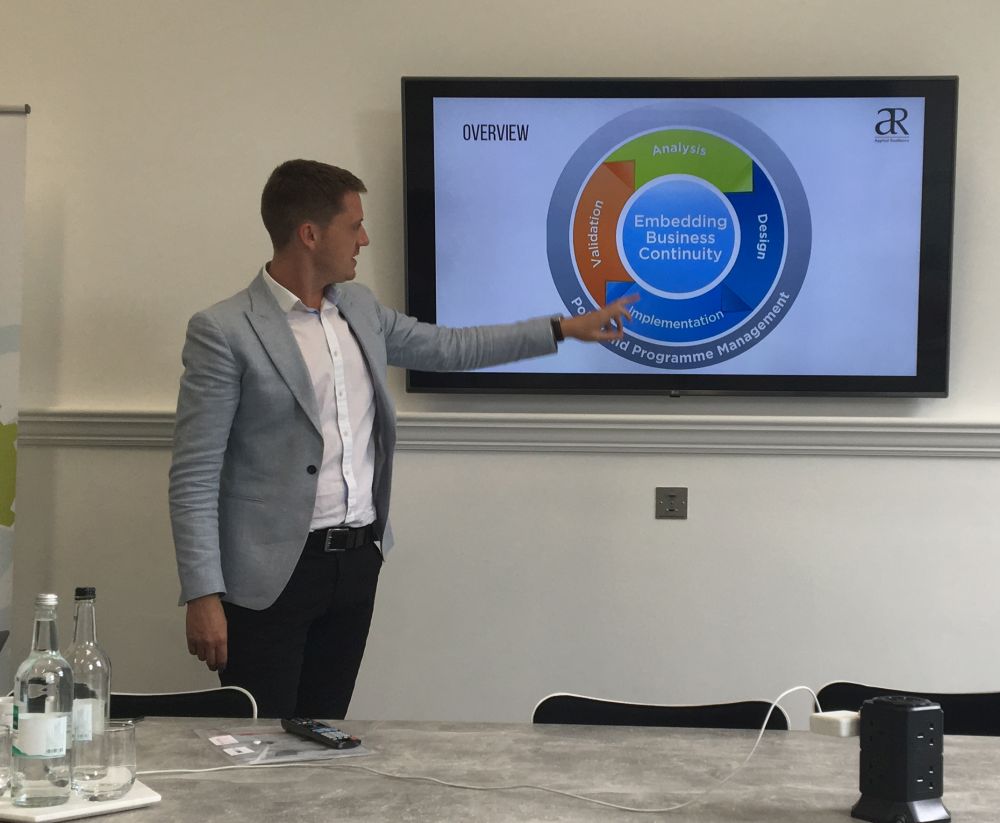Hope for the best, plan for the worst and expect to be surprised

This title is two quotes combined – from authors Denis Waitley and Lee Child. It neatly encapsulates a “light-bulb” moment I had during an excellent briefing on Business Risk, delivered by Nick Moon of Applied Resilience. I know this is not as exciting as sales and marketing, but if we are to run a successful and sustainable business we need to make sure we can weather any storms that come our way.
We are probably all familiar with managing business risk, from time to time considering various scenarios and making some provision to either prevent bad things happening or cope with them when they do. Nick took us through some very straightforward processes to carry out a Business Impact Assessment (BIA) and plan for business continuity in the event of major disruption to normal services.
Nick’s first piece of advice completely changed my approach to scenario planning. Instead of thinking though all the “What-if” scenarios of internal and external disruption (which could be many and varied), he advised to think “What happens if it (our services) stops” instead of thinking about the reason. For example, “what happens if our telephone lines go down” rather than “what happens if a digger goes through the cable/there is a fire at the local switch/hardware failure/network outage/software issue”. The only thing that matters is that the phones are not working and we need to get an alternative up and running quickly. We can never think of all the possible things that could happen anyway, and the reason why is not relevant to the fact that we need an alternative means of communication.
This makes BIA much easier. All we need to do is think of the main functions of our business, and plan for them not being available. There are only a few of those, compared to the list of bad things that could happen to cause us to have a problem. There is obviously much more detail in the planning process to make sure we have business continuity, and I would recommend attending one of the Applied Resilience seminars to lean more about how to plan for and manage business continuity.
Hopefully this advice will help you “plan for the worst”, and the “surprise” need not matter!
Neville Merritt,
